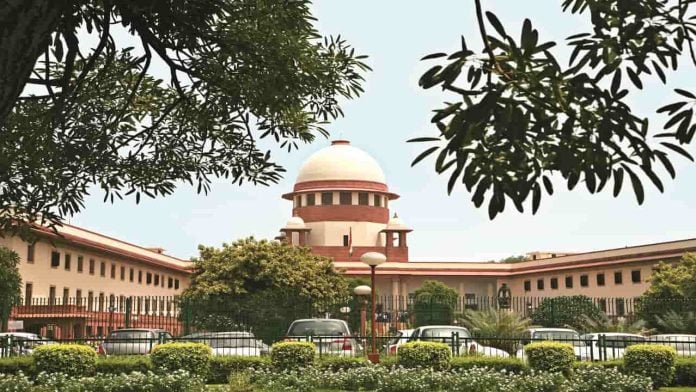The Supreme Court on Monday referred to a Constitution Bench of five judges, a batch of petitions challenging the anonymous electoral bonds scheme.
The matter was mentioned before a Bench headed by Chief Justice of India D.Y. Chandrachud, which decided to refer it to a five-judge Bench in view of Article 145(4) of the Constitution, apart from the importance of the issue raised in the petitions.
The Apex Court said that the matter will be retained on the board on October 30.
The petitions challenged the amendments introduced by the Finance Act 2017, which paved the way for the anonymous electoral bonds scheme.
A three-judge bench led by CJI Chandrachud had last week agreed to hear the pleas, which were filed in 2017, after the petitioners urged that the matter be heard before the upcoming general elections.
The Finance Act had introduced amendments in 2017 in the Reserve Bank of India Act, the Companies Act, the Income Tax Act, the Representation of Peoples Act and the Foreign Contributions Regulations Act, to make way for the electoral bonds.
By virtue of the 2017 amendment made to Section 29C of the Representation of Peoples Act 1951 (RPA), a donor may buy an electoral bond at specified banks and branches using electronic modes of payment and after having completed the KYC (know your customer) requirements.
However, political parties were not required to disclose the source of these bonds to the Election Commission of India (ECI). The bonds can be bought for any value, in multiples of Rs 1,000, Rs 10,000, Rs 1 lakh, Rs 10 lakh or Rs 1 crore.
The name of the donor will not be there in the bond. The bond will be valid for 15 days from the date of issue, within which it has to be encashed by the payee-political party.
The face value of the bonds shall be counted as income by way of voluntary contributions received by an eligible political party, for the purpose of exemption from Income-tax under Section 13A of the Income Tax Act, 1961.
Filed by the Communist Party of India (Marxist), along with NGOs Common Cause and Association for Democratic Reforms (ADR), the petitions challenged the scheme on the grounds that it was an ‘obscure funding system,’ which would remain ‘unchecked’ by any authority.
As per the petitioners, amendments to the Companies Act 2013 would lead to ‘private corporate interests’ taking precedence over the needs and rights of people of the State in policy considerations.


